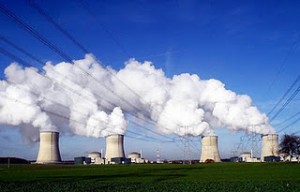
Facing pressing issues of funding and stability, Spain’s energy sector has looked for some clarity about what the industry will look like under a Mariano Rajoy-led government, but it has found little. Like his plans for most areas, Rajoy has remained vague about what he has in store for the country’s energy actors, pledging to unveil details and appointments only after he takes office on December 21.
Still, despite the prime minister-elect’s silence on the issue during the election campaign, a long political path and party positions reveal some hints about how the new conservative government will tackle both traditional and alternative energy issues.
Eager to hear the new government’s plans to address issues related to reduced demand, Spain’s natural gas sector has begun pressing for quicker action in 2012. Natural gas firms have lately found themselves with over-supply as the impact of government support for alternative fuels sources and a recessed national economy have reduced the role of their product in domestic energy generation. With government support for the coal industry and increased subsidies for renewable energy projects under the outgoing Prime Minster José Luis Rodríguez Zapatero, natural gas saw demand steadily erode even as new transport lines from North Africa were introduced.
While the sector could see some increased attention as the Rajoy government explores possible further cuts in subsidies for solar and wind efforts, the new administration has signalled willingness to explore other options as well. Previous to this year’s campaign, Rajoy and the PP expressed interest in pushing the European Union to allow for greater access to the continent’s energy grid in the form of delivery pipelines between Spain and France. Modest at best, the existing pipelines have restricted Spain’s ability to shift natural gas from North Africa into the European market and created a glut of product as domestic demand has waned.
However, any such effort to expand the relatively weak pipeline connections from Spain to the rest of Europe will have to overcome a long history of opposition from French lawmakers and energy firms.
Any expansion in access to the European energy grid could help support Spain’s burgeoning deep-set shale effort, which has seen some momentum in the northern Basque region this year with the opening of the country’s inaugural project. With the potential to exponentially increase domestic gas production, shale projects have been touted as invaluable energy assets to Spain’s energy security. However, Rajoy and the PP have not made any formal comments on the practice and controversial nature of the shale extraction process that has earned the industry outright bans and moratoriums in Germany, France and the UK amid environmental fears.
Expecting an almost certain increase in subsidy cuts by a PP government intent on cutting spending, Spain’s renewable market will face a difficult year, made all the more complicated by a series of lawsuits brought on by foreign and domestic industry actors. Calling for the Spanish government to make up for cuts to subsidies introduced in December 2010, a collection of 15 funds that had invested in solar and wind projects in Spain filed suit to the tune of €600 million.
Despite the sector’s clear challenges in funding and government support, renewables have seen some new interest as investors consider the potential of an industry now desperate for funds to keep afloat. Last week saw U.S.-based private equity fund First Reserve announce that it would lead a joint effort that could mean almost €1 billon towards wind projects in Spain.
Obstacles to a nuclear policy
Based on earlier statements of support and policy proposals, Spain’s nuclear power sector could receive a boost from a Rajoy administration. Rajoy and the PP have previously issued support for reversing the country’s long-time ban on new nuclear plant construction that has been in place since 1984, with the last plant completed four years later. The reversal could mean the approval of new projects across the country that would help replace aging plants, which boast 40-year life spans according to Spanish law.
Still, reintroducing such strong government support for nuclear power solutions to Spain may be difficult with the legacy of Japan’s Fukushima disaster still fresh. The leak proved difficult for Italy’s Silvio Berlusconi in his attempt to reverse the country’s 20-year ban on nuclear energy earlier this year. His proposal was shelved indefinitely after public and political support shifted against it.
However, any new changes to Spain’s energy policy will face further delays if early reports about ministry re-organization prove to be true. Plans for the new year could include folding the existing Ministry of Industry, Tourism and Trade, which is currently responsible for creating the country’s energy plans, into a sprawling Ministry of the Economy, according to Platts energy wire.
While this shift may only be a change in bureaucratic language, there are worries that uncertainty about revised roles and authority could delay new decisions and a long-term energy plan (2014-2020) that was put on hold as the Zapatero government approached the election season.
I wonder if I understood correctly that this article calls the Fukushima catastrophe a mere “leak”.